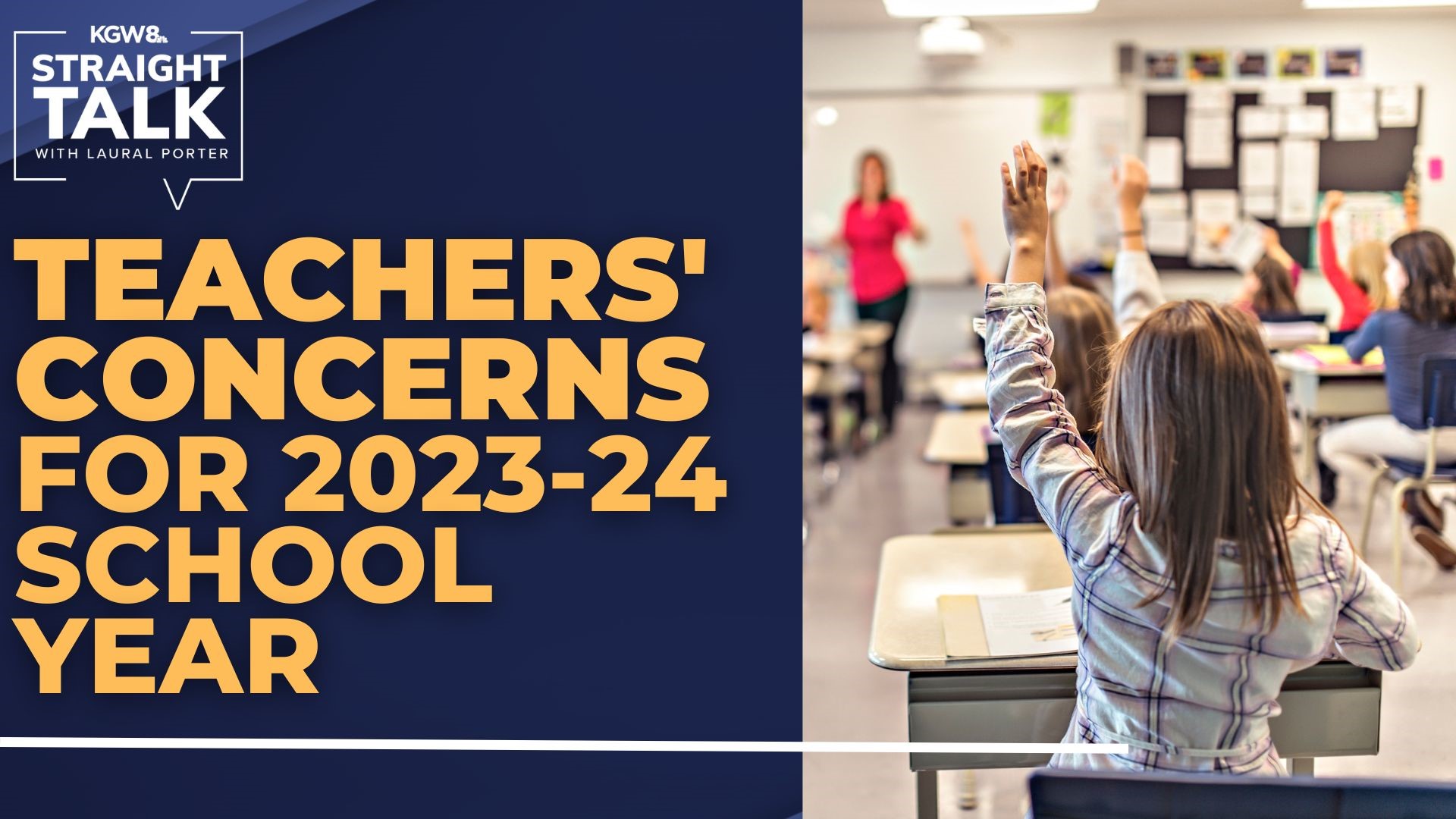PORTLAND, Ore. — Students in the Portland metro area are heading back to school in the coming days. It will be their third full school year since schools were shut down because of the COVID-19 pandemic.
In recent years, students and teachers have dealt with increasing mental health needs, safety and security concerns, staffing shortages and culture wars that reached into our schools.
On this week's episode of Straight Talk, three teachers spoke to KGW about those concerns and what can be done to meet the needs of everyone at school.
This week’s guests
- Lindsay Ray, high school math teacher in the Beaverton School District and the president of Beaverton Education Association
- LeAndre Butler, elementary teacher in the Hillsboro School District and equity chair of the Hillsboro Education Association
- Reed Scott-Schwalbach, high school Spanish teacher and president of the Oregon Education Association
Here are some excerpts from the conversation. To view the full show, watch the video at the top of this article.
Student mental health
Lindsay Ray: "I do want to stress, I think a lot of these issues existed before the pandemic and were exacerbated [by the pandemic]. Now that we're coming out of it, we're really seeing the manifestation of a lot of unmet needs. There are so many things that educators are working to do for students when they walk in the door, especially for our youngest folks, who really missed a lot of that developmental time within schools. We're really having to address a lot of those mental-health needs. And I would say also for our secondary students, those needs are increased. And on top of that, we have educators who are struggling with mental health and really are needing to find supports so they can do their best work."
School staffing shortages
Reed Scott-Schwalbach: "Pay is one of the reasons why people end up leaving the profession. I was talking with a chemistry teacher last week who pointed out that she really loves her job but she realizes she could be making a six-figure salary if she were working as a chemist. So in supporting educators in staying in the profession, we really do need to look at the compensation, both the salary and the benefits. And we've been making that a big issue with the legislature, and the legislature has been responding. You might have seen what the current service-level funding was this year, and it was closer to where we know we need to be, but it still falls short of the supports that our students and our educators need."
Culture wars
LeAndre Butler: "The last few years, as I've been teaching fifth grade, those students are the most inquisitive. And as I engage them in this real history that is hard sometimes, these last few years I have seen on more than one occasion students who come back and say, 'I can't wait to go deeper into that.' Our students are so smart and they recognize when we're limiting their learning and when we're keeping something from them. But when we get to expose them to the true reality and they get to go and dive deep in to their own understanding, that's really what the basis of an education is, is helping our students become great learners."
VIDEO PLAYLIST: KGW's Straight Talk with Laural Porter

